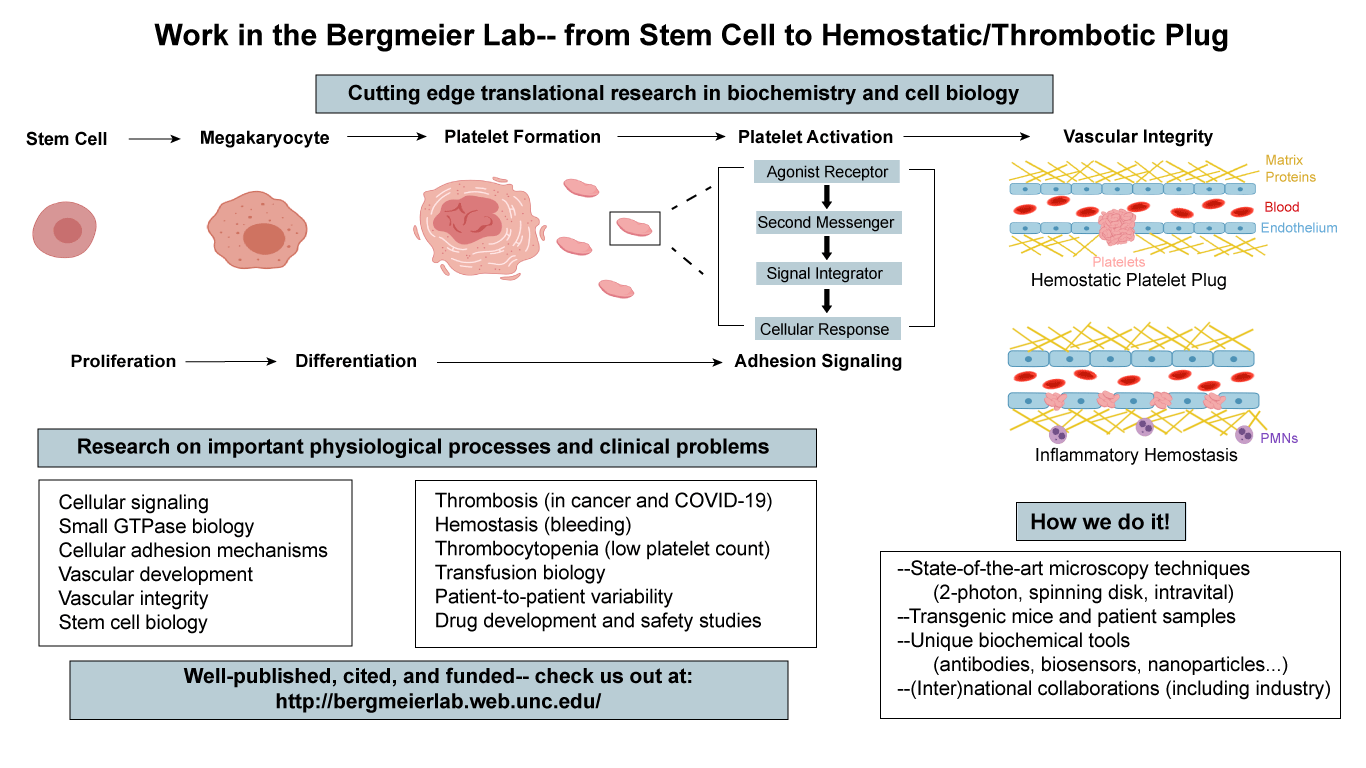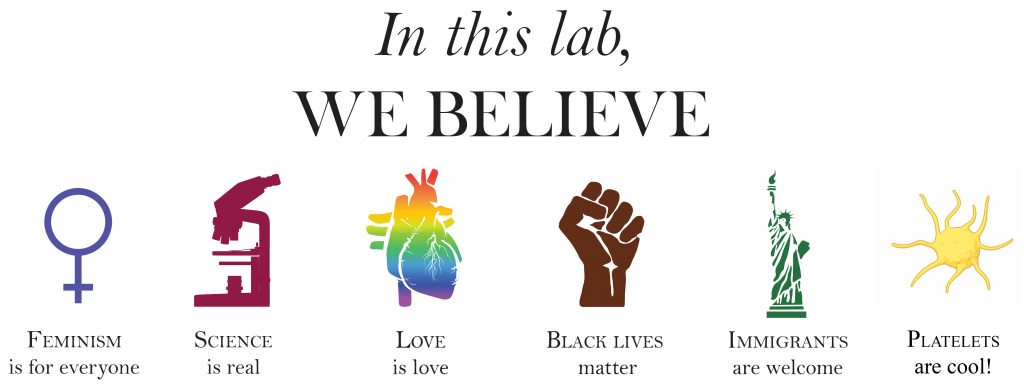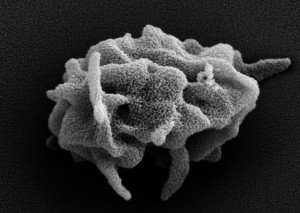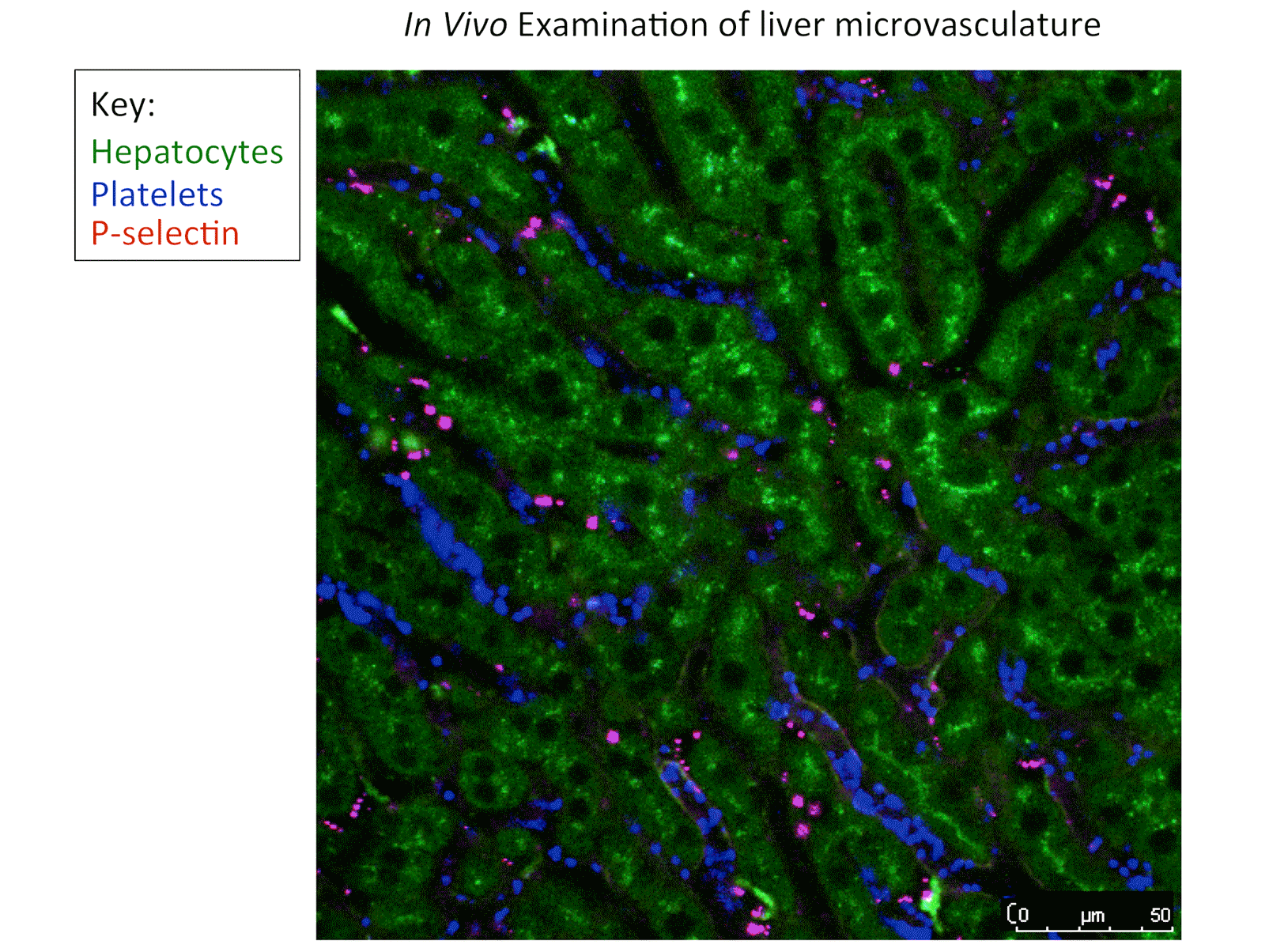THE BERGMEIER LAB
Our group employs a multidisciplinary approach (biochemistry, cell and molecular biology, immunology, cutting-edge microscopy and animal models) to investigate how stem cells turn into a unique blood cell, the Platelet, and how altered platelet function contributes to human disease.
Platelets are small anucleate blood cells that are best known for their ability to help us stop bleeding (hemostasis) when we are injured. Platelets drive the formation of a hemostatic plug through a complex process involving G-protein coupled receptors, calcium-mediated signaling, cytoskeletal remodeling, integrin-mediated adhesion, and apoptosis. Dysregulation of these processes in platelets may contribute to the onset and progression of various bleeding disorders, thrombosis (heart attack, stroke, venous thromboembolism, COVID-19 associated thrombosis) and cancer.
Our affiliation with the Department of Biochemistry and Biophysics and the UNC Blood Research Center provides us with amazing tools and opportunities for collaborations with basic scientists and clinicians and creates an unique environment to foster our translational research.
Stem cells to Platelets in the Bergmeier Lab




